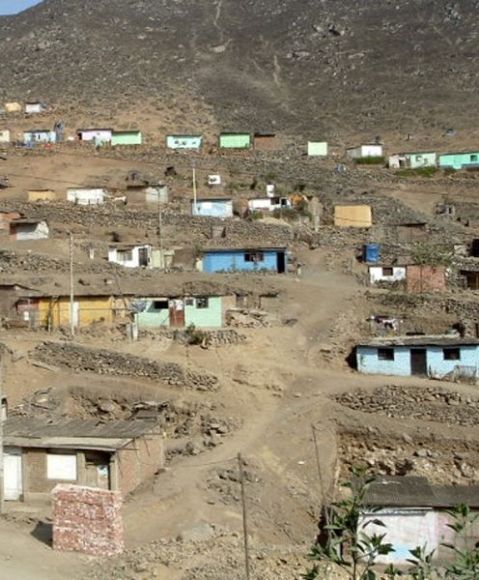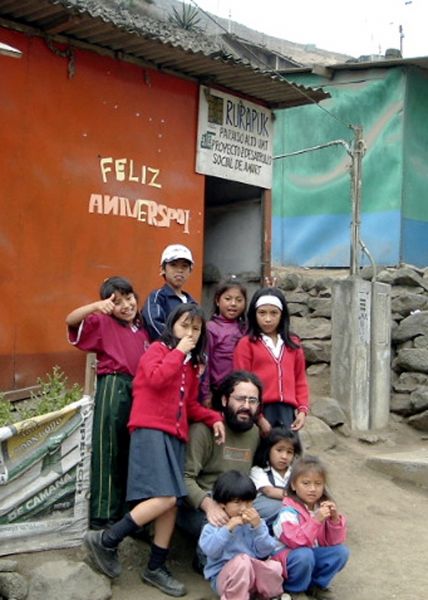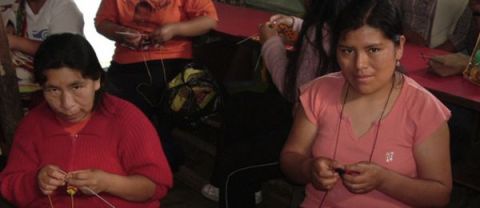Fair Trade and Cooperatives
November 6, 2007
There is increasing attention being paid these days to fair trade goods made by cooperatives and collectives around the world. The idea is a hopeful one: Items are made by groups of people for a true living wage, with the added benefit of health care or education in some instances, and a move towards economic self-sufficiency.
Many of us are trying to be more mindful of how we spend our dollars this year, and are actively seeking handmade or fair trade pieces for our children. But do you ever find yourself wondering just how much good your money is able to do? I know I do. I hope the collectives are ethically run. I hope families that had little or nothing previously will benefit in some small way from my choice. I hope I’m not just assuaging my own conscience about having so much when so many others have so little.
I suspect I’m not alone in thinking this way. That’s why I’d like to introduce you to one of the groups involved in making wares for our shop. I work with several collectives and groups, some of whom have been collaborating with designers and companies for years. The EVI group in Brazil is perhaps the longest-standing of its kind. This group was originally started to help single mothers support their families by using their craft skills. Today their Waldorf-style dolls are known throughout the world.
Yellow Label Kids works through the Fair Trade Organization with a group of mothers in Bangladesh. En Gry & Sif works with a group in Nepal. Blabla commissions its scrumptious popular knits from a group in Peru. Georgian Wood Toys is a self-formed collective of artisans affiliated with the Waldorf educational movement in the Republic of Georgia. Their wooden toys are made in sometimes difficult conditions: When DoloresRose Dauenhauer first started importing their pieces a few years back, they had sporadic electricity and heating throughout the day, but they remained wholly dedicated to their craft, and our children have reaped the rewards.
Even older established firms like Kathe Kruse and Ostheimer have a history of employing mothers or those with disabilities seeking to do handwork from their homes.
There is one group of people, however, that really captured my attention this year, and I want especially to share a bit of their story with you. Known as the Rurapuk Mothers, they are based in an extremely poor neighborhood named “Paraiso Alto” outside of Lima, Peru. You can see a section of the area in the photograph above. I first saw this image over the summer and was struck by how truly stark it is. Besides the obvious dilapidation of the houses, I noticed there was almost no green or vegetation to be found in the landscape. It turns out that Paraiso Alto has no running water, sewage system, clinics, parks or green areas, and many people do not even have electricity.
Yet, in 2002, a collective of mothers was formed with the goal of providing the women an income. The women knit and crochet in their homes and meet twice a week with a coordinator. So far they have created items for dolls and pretend play, with plans to introduce new items through Camden Rose (itself a collective of American artisans, educators and musicians) in 2008.
In addition to providing Fair Trade opportunities, Rurapuk also hosts a Hot Lunch Program that provides a vegetarian lunch for the children of the area five times a week. Individuals, organizations and families interested in sponsoring the program may contribute $15 a month to cover costs. (You may contact Camden Rose at 734-995-1400 for more details.)
When I saw these photos and read about the group, I frankly couldn’t wait to place an order. This seemed one of those instances when doing something as small as buying a toy could provide a real benefit for people living in conditions we could not imagine. With so much need in the world, it is easy to become paralyzed and wonder how we could possibly contribute, or where to begin. Rurapuk helped me realize that sometimes it’s best to start with the things that are put right in front of you.
Quiet Hours currently stocks Rurapuk’s Market Bag and will continue to add items as their product line grows.



November 6, 2007 at 5:16 pm
[…] quiethourstoys added an interesting post on Fair Trade and Cooperatives.Here’s a small excerpt:The idea is a hopeful one: Items are made by groups of people for a true living wage, with the added benefit of health care or education in some instances, and a move towards economic self-sufficiency. … […]